The Northwest Monsoon
When we first came to the island in December we arrived in the middle of the northwest monsoon, which is basically from October to April. This monsoon is stereotypically tropical and has high rainfall and high temperatures which the combination of the two bring with it high humidity. The high rainfall is a very important part of this time of year; it provides water for both the island and its occupants. The vegetation turns green and starts to look very lush and the ground water builds up as the water collects from the rain that falls on the hill and rushes down to the lower ground below.
When we first came to the island in December we arrived in the middle of the northwest monsoon, which is basically from October to April. This monsoon is stereotypically tropical and has high rainfall and high temperatures which the combination of the two bring with it high humidity. The high rainfall is a very important part of this time of year; it provides water for both the island and its occupants. The vegetation turns green and starts to look very lush and the ground water builds up as the water collects from the rain that falls on the hill and rushes down to the lower ground below.
 This water is very important as it fills up the marsh and the well, which both the wildlife and us rely on in the drier months. The northwest monsoon is also the time when we harvest the rainwater for drinking. We do this by collecting all the water that falls on the roof of our house and put it in large barrels that we can then filter and drink. To make sure that the water is as clean as possible, it is very important to ensure that the roof is regularly washed off and that all the bird pooh, leaves and pine needles have been removed.
This water is very important as it fills up the marsh and the well, which both the wildlife and us rely on in the drier months. The northwest monsoon is also the time when we harvest the rainwater for drinking. We do this by collecting all the water that falls on the roof of our house and put it in large barrels that we can then filter and drink. To make sure that the water is as clean as possible, it is very important to ensure that the roof is regularly washed off and that all the bird pooh, leaves and pine needles have been removed.The northwest monsoon is our busy time for visitors, the weather is a lot calmer and so the sea is calmer too, which means that it is easy for boats to reach us and for us to greet the visitors on them. The sea is also excellent for snorkelling at this time of year, which attracts many holiday makers, who come to see the tropical fish that live around the coral reefs of Aride. The weather at this time of year is largely settled and the temperatures can regularly reach over 30’C in the day and not drop to less than 28’C at night.

A large percentage of our work at this time of year is taken up with running the business of the island and increasing the money that can be raised from the tourism trade as this is the main source of income we have. We charge an entrance fee for visitors to the island and we have a small shop and information centre where we sell souvenirs and books. All the money that we can raise will then go directly back to supporting the conservation work undertaken for the wildlife of Aride.
 The calmer seas mean that we are also able to do more work with the local communities at this time of year, as we can almost guarantee that the weather will enable us to make the 6 mile crossing to Praslin our neighbouring island. This means that we can reliably plan to work with the local schools and the tourist operators. Working on an island, reliant on the weather conditions, often means that it is very difficult to plan, which can result in us letting people down and not able to make appointments.
The calmer seas mean that we are also able to do more work with the local communities at this time of year, as we can almost guarantee that the weather will enable us to make the 6 mile crossing to Praslin our neighbouring island. This means that we can reliably plan to work with the local schools and the tourist operators. Working on an island, reliant on the weather conditions, often means that it is very difficult to plan, which can result in us letting people down and not able to make appointments.The more settled weather also means it is easier to be self sufficient for food; we are able to regularly catch our own fish as the sea conditions allow us to take the boat out for fishing. The vegetables and trees provide fruit more regularly due to the higher rain fall and crossings to the shops for supplies can be more frequent if we need them.
 As well as the tourists we have other important visitors during the northwest monsoon, which rely on the calmer seas and the sandy beach. These are the population of hawksbill turtles that come to lay their eggs on Aride. Hawksbill turtles are very special and we are very lucky to have them breeding here on the island, last year we had 63 nests, with some of the females laying over 3 nests each. They are very rare and still on the critically endangered list and were really threatened just a few years ago as people used to kill them to eat. Now they are protected and populations like Aride are very important for the recovery of the worlds’ population.
As well as the tourists we have other important visitors during the northwest monsoon, which rely on the calmer seas and the sandy beach. These are the population of hawksbill turtles that come to lay their eggs on Aride. Hawksbill turtles are very special and we are very lucky to have them breeding here on the island, last year we had 63 nests, with some of the females laying over 3 nests each. They are very rare and still on the critically endangered list and were really threatened just a few years ago as people used to kill them to eat. Now they are protected and populations like Aride are very important for the recovery of the worlds’ population.




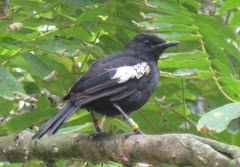




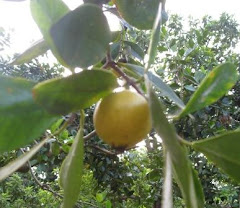

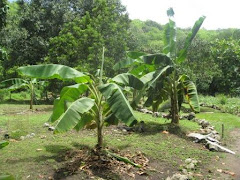
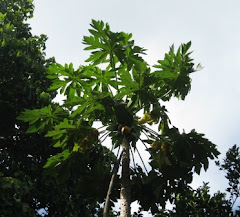
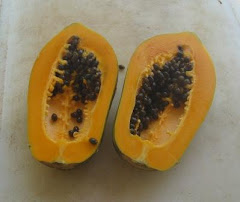
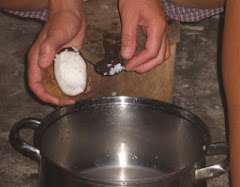


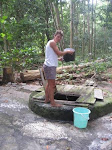



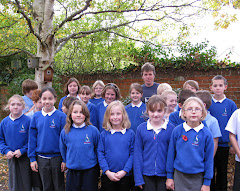
2 comments:
Sally please update the blog so we can have some new information about the island.
thanks India
Please update the blog
Rebecca
Post a Comment